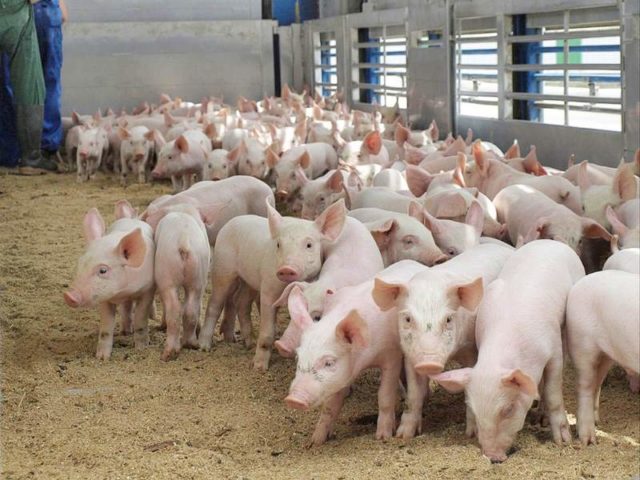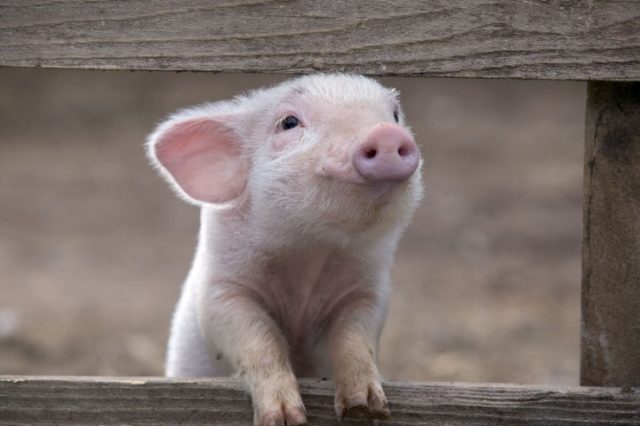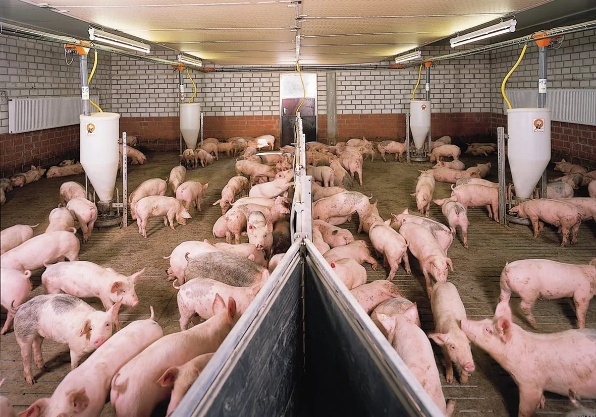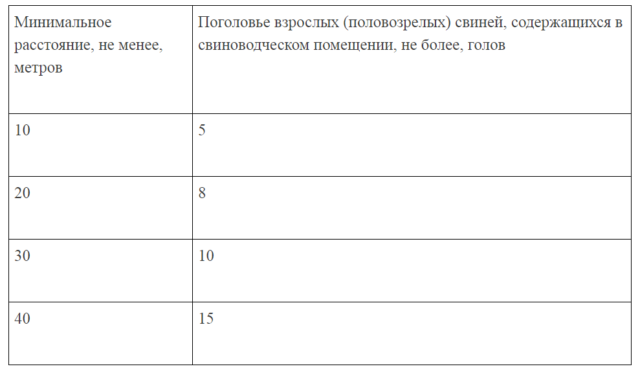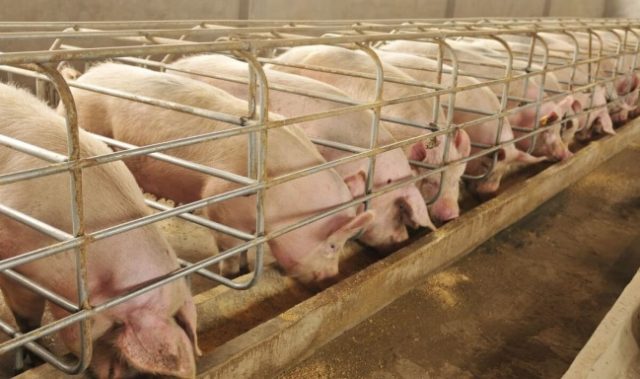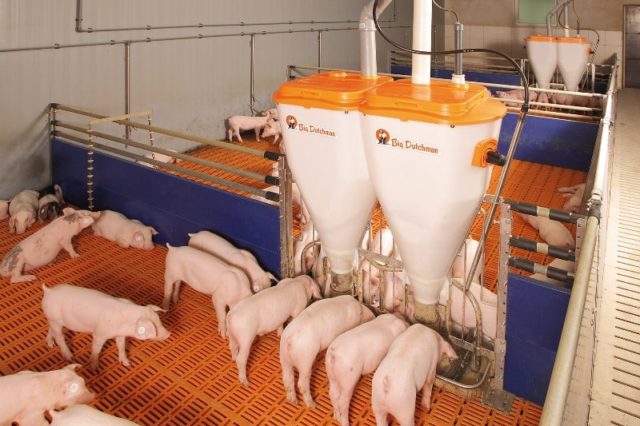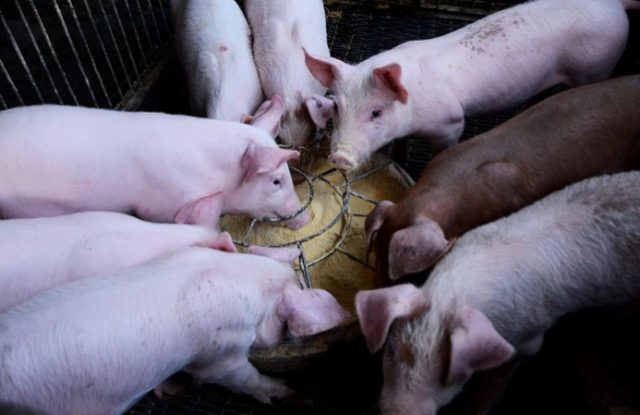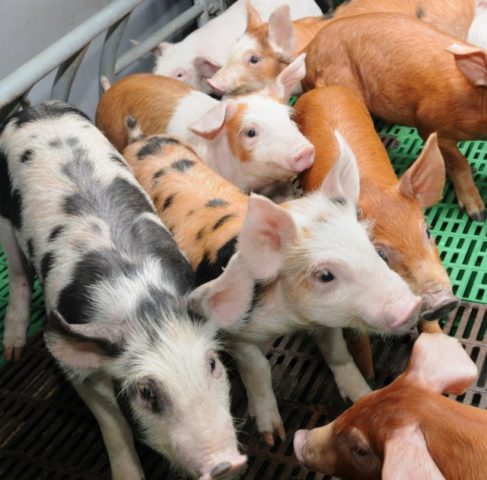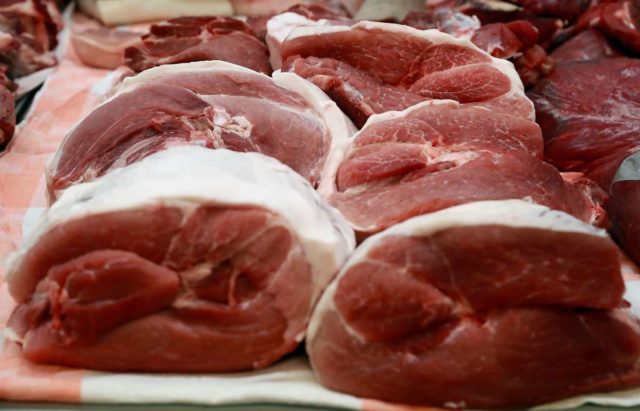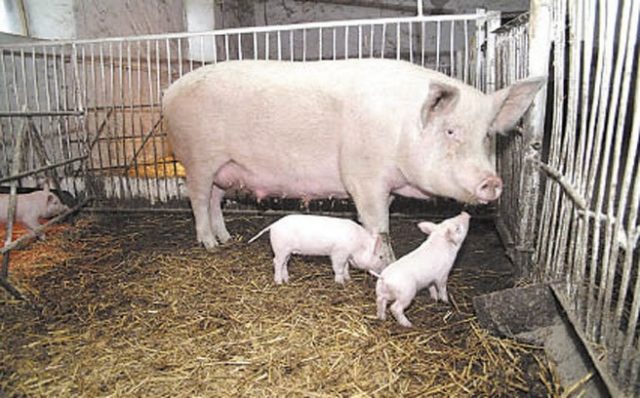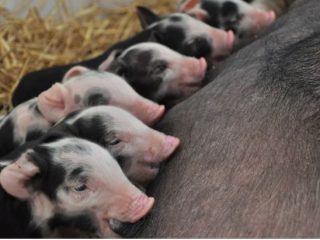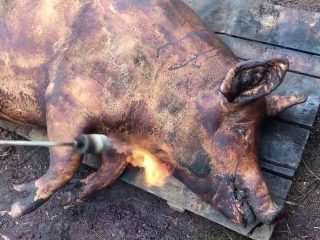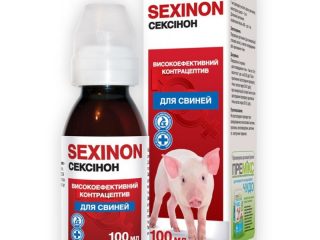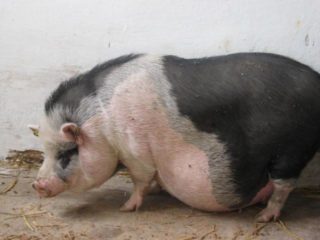Content
It is possible to start pig farming as a business, succeeding in business, and not being disappointed in it, only after carefully calculating the necessary costs and risks. Any kind of business is a rather risky business. Agriculture ranks high on the list of high-risk businesses. And among the agricultural sectors, the most risky, but also the most profitable types of business are poultry and pig breeding.
Pig farming as a business: is there a benefit
It must be said bluntly that any business in the world is profitable. Somewhere more, somewhere less, but there is always profit. Otherwise, the business dies out. Another question is that sometimes, in order to make a profit, it is necessary that production be carried out in very large volumes.
The profitability of pig breeding is one of the highest of all livestock industries. This is proved by the example of agricultural complexes growing like mushrooms where pigs are bred. Piglets grow quickly, the sow brings on average 10 pups per farrowing, and pigs are pigs 2 times a year. But this is also the problem for domestic pig breeding. Even two sows plus 20 piglets can create serious problems for the owner of a private house with sanitary and veterinary services.
Private traders usually do not breed pigs, but take piglets for fattening. It's easier than keeping pigs all year round. But such raising of pigs for meat cannot be considered as a business either. Rather, an addition to the basic income and providing the family with quality and fresh meat.
Is it profitable to keep pigs for selling meat?
The profit from pig breeding as a type of business directly depends on the “shaft”. A complex for 5-10 thousand pigs will give a greater percentage of profit in terms of 1 pig than a private owner with his small livestock. Much depends on the ability to purchase large-scale wholesale lots of feed in "wagons" and the automation of the pig feeding process. A rough estimate shows that keeping pigs to sell meat at home can be quite profitable: the cost of feed for 6 months is 10,260 rubles, the sale of pork is 27,000 rubles. But such a rough calculation was made on the basis of the cost of a bag of compound feed, keeping a pig for 6 months and selling 100 kg of pork. In reality, everything will not be so. The cost of juicy feed and premixes should be added to the price of compound feed for pigs, and 5,400 rubles should be deducted from the income after the sale of pork: the maximum slaughter yield of pork that can be sold does not exceed 80% of live weight.
And the profitability of the business is already falling. As a result, the income for the year will be 1 thousand rubles. per month for each pig raised. For this reason, the owners of the complexes do not waste time on trifles, building farms for several thousand pigs. The cost of a large-scale batch of pig feed from the manufacturer will be 3-4 times lower. Sometimes the production of feed is our own. Automation reduces the number of employees on the farm. With automatic cleaning and feeding, one employee can serve up to 5 thousand pigs. But the initial investment in such a complex is considerable.But there is also an opportunity to save money at the initial stage of the business, if you do not build a complex from scratch, but rent an old farm of Soviet construction.
An example of such a business start in the video
A private trader in the village will be able to keep no more than 15 pigs, provided that the size of the plot allows it. Accordingly, you can earn 15-20 thousand a month by raising piglets for meat at home. But this is subject to the "handwritten" sale of pork. It is already unprofitable to hand over carcasses to dealers.
Is it profitable to keep pigs for selling piglets
If there is a strong demand for piglets in the immediate vicinity, it may be more profitable to keep several sows in order to sell the piglets. The cost of feed for the pig will be the same as for fattening. The sow does not need to gain too much weight, but she needs to feed the brood, which means an increased diet. If a pet pig could consume no more than 2 kg of compound feed, then a lactating sow should receive the same 3 kg plus lactic succulent feed.
With regard to brood pigs - "neat". The sow brings piglets 2 times a year: 4 months of gestation, 2 months of feeding, after which it comes back to hunt. 2 month old piglets can already be sold. The price of young pigs varies depending on the region and breed in the range of 1.5-4 thousand rubles.
If we consider the breeding of piglets as a business, you need to find out the demand and prices for young animals.
Plus the sale of pigs is that more pigs can be kept on the backyard than when raised for meat. The trick is that while the piglets are in the same pen with the sow, they are counted as one individual. As soon as the piglets are separated, they will be counted by heads.
A pig will eat compound feed for 10.3 thousand rubles in six months. Piglets are taught to eat solid food early enough, but the count in the first month is literally per grams. A brood of 10 piglets will consume compound feed for a total of no more than 3 thousand rubles in 2 months. The total costs will amount to 13.3 thousand rubles. Income from the sale of the brood is 40 thousand rubles. As a result, one pig can get 26.7 thousand rubles every six months. For the year 53.4 thousand rubles. From 5 adult pigs 267 thousand rubles. The monthly income of the owner of the site will be 22 thousand rubles.
A rough estimate shows that when considering pigs as a business at home, it is much more profitable to raise piglets than to raise animals for meat. With this type of business, there are no problems with slaughtering pigs. This procedure should be carried out in specially equipped places, and more simply in slaughterhouses.
Is it profitable to breed pigs
A very limited number of animals can be kept in a private backyard. If you are engaged in a serious business of raising and fattening pigs, you will have to make a pig farm. It is unprofitable to breed any mono-type of livestock on a personal plot. And usually no one lives only from their subsidiary farm. That is why it is auxiliary. Owners of private houses in the villages keep not only pigs, but also cows or goats, chickens and other poultry. And with the development of large farms and the appearance of cheap meat in stores, they often prefer to get rid of cattle, since the cost of "home" products is much higher than prices in stores.
This means that it is beneficial to keep pigs for sale if the animals are raised on the farm in large numbers. That is, at least a farm should be registered.
Provided that the cost of one piglet is 4000 rubles, 40 thousand will be required to buy 10 pigs. Growing piglets for up to 8 months will require another 103 thousand rubles.
It is impossible to indicate the cost of equipping a farm, since there are a lot of variable factors in this scenario:
- empty land plot - finished buildings;
- communications summed up - not summed up;
- land purchase - rent;
- auto drinkers - hand drinkers;
- auto feeders - hand feeding;
- removal of manure manually, semi-automatically, using a conveyor;
- slaughter on site - at the slaughterhouse;
- remoteness from infrastructure or close location.
These farm costs can only be determined locally and for a specific site. Even the cost of the project, no one can say without knowing which plot of land has been chosen for the farm. Therefore, the cost of equipping a farm may vary from positive 1 million rubles. to depressive tens of millions.
Where to start
Before you start drawing up a business plan for pig breeding in order to get a loan from a bank, you need to decide on the type of economic activity and a place for a farm. Perhaps there is no suitable site for a pig farm nearby, and you will have to move to a new place of residence or do something else. If there is a suitable site or ready-made buildings, the issue of registering an individual entrepreneur, private farm or LLC depends on the preferences of the entrepreneur. But only on condition that the farm will be owned by one person. If several people invest in the business, an LLC will need to be registered. The latter will always be a legal entity, while an individual entrepreneur or private farm can open an individual. Restriction for LLC - the need to confirm the authorized capital in the amount of 10 thousand rubles.
The definition of a pig breed depends on the demand in the region. With the modern fashion for a healthy lifestyle, the demand for lean pork is growing. In this case, it is better to choose the breed of pigs of the meat direction: Landrace, pietrain, duroc.
But in the northern regions even today one cannot do without a source of large amounts of energy, that is, fats. The farther north, the more fatty foods a person needs. Accordingly, in the north, even in cities, the demand for fat may be higher. It is difficult to argue with your own body even with aggressive promotion of healthy lifestyle. When producing lard, you need to choose greasy and meat-greasy breeds of pigs: hungarian mangalica, large white, Ukrainian steppe (both options), Belarusian speckled and others.
It is optimal to take a pig that is as adapted to local conditions as possible. If there is a great demand for piglets, it is necessary to start a multiple breed of pigs, taking into account the productive direction that is in demand in the region.
The availability of feed within the reach also needs to be clarified in advance. The further you need to carry the feed, the more expensive the delivery, and, consequently, the production cost. If there is "extra" space on the site, you can plan the cultivation of juicy feed: pumpkin or fodder beets.
At home or on the farm
Whether to raise pigs in a domestic pigsty or to have a separate farm depends on the size of the land owned / leased. The distance, which should separate the pigsty from the border with the neighboring plot, directly depends on the number of pigs (but not more than 15 heads).
The site must be equipped with a manure storage, designed for at least a year of excrement collection. And this storage should be even further from the neighboring area or hermetically closed. Because of the large amount of urine, pig excrement quickly becomes liquid, the storage should be concreted.
Because of these limitations, in order to decide whether to make a farm or to get by with your own plot, you will have to take a tape measure and measure all the distances. Considering that the average size of land plots in a village does not exceed 20 acres, it is unlikely that it will be possible to have more than 5 pigs on a personal plot. With so many heads, pig breeding is not profitable as a business. This is just an increase in income. If you want to take care of pigs, you will have to think about a pig farm.
Choosing a place for a pig farm
Requirement for any livestock complexes and farms: location outside the settlement.Even if this point is just a village. If the distance between a dwelling house and a pigsty on a backyard farm can be only 15 m, then for a pig farm this distance is no less than 100 m.The pig farm must also be at a distance of at least 150 m from other livestock buildings.
The site must be chosen on a hill. The distance from the foundation to the groundwater must be at least 2 m. The construction of a farm near water bodies is not allowed.
The farm area must be surrounded by a fence. Trees are planted around the perimeter.
List of required documents
After the form of the future enterprise has been determined, it is necessary to draw up the documents.
Starting an activity without prior registration is punishable by fines. For individual entrepreneurs, you need to submit to the tax office:
- statement;
- photocopy of your passport;
- a receipt for payment of the duty (800 rubles).
An LLC requires a more voluminous package of documents, including the Charter. The duty for LLC is 4 thousand rubles. In both cases, registration will be completed within 5 business days.
But even after the enterprise is registered, it is still too early to calculate an exact business plan for pig breeding. You need to get a few more documents beforehand:
- a lease agreement or a document confirming the ownership of a land plot;
- permission from the local administration for the construction of a livestock building;
- permission from SES, state labor inspectorate, fire supervision.
All these operations are carried out before the purchase of livestock. But the fire inspectorate and SES will only be interested in the finished building. Therefore, it must be borne in mind that additional costs are possible to eliminate deficiencies.
Breed selection
Regardless of business goals, the main requirement for a sow is high fertility. Further there is differentiation according to the requirements:
- quick set of muscle mass when breeding for meat;
- tendency to salting when breeding for lard;
- good survival rate of piglets when breeding for sale.
Trying to breed a new breed “on the knee” is not worth it. Breeding work requires a large number of livestock. This is especially true for pigs sensitive to inbreeding. Usually, new breeds of pigs are bred in several large farms at once, operating according to the same program.
It is better to buy piglets for breeding in different farms in order to avoid inbreeding. If the plans are only for feeding and selling pigs for meat, piglets can be bought on the same farm. But in any case, large, healthy piglets are selected without conformational defects.
Fodder base
For rapid growth, pigs need compound feed. Before starting a business, you need to find out where and at what price in the area you can buy feed. This can be a wholesale warehouse or a manufacturing plant. It is more profitable to conclude an agreement with the plant for the supply of feed. The plant will not leave 10 bags, but from 1 ton it is already possible to agree on transport from the plant. Succulent feed can be purchased from a root or melon farmer.
Staff
When drawing up a business plan for setting up a mini-pig farm, it makes no sense to include attendants in the calculations. With a large number of pigs, the number of personnel depends on the level of farm automation. With completely manual labor with minimal mechanization (wheelbarrows for feed and manure removal), one pig should have about 70 pigs. With full automation, one employee is enough for several thousand heads.
It makes no sense to keep the veterinarian and zootechnician at the rate. A zootechnician can be involved under a one-time contract. A veterinarian is also not needed every day, but his phone number should always be at hand. Mandatory routine vaccinations should be carried out by the state veterinary service with the preparation of relevant acts.
A livestock technician can also artificially inseminate pigs. In this case, it will not be necessary to keep boars on the farm, it will be possible to avoid inbreeding and get high quality piglets from elite producers.
If there are 50 pigs for one pig, he will be able to keep his area of the farm clean. But handymen will be needed to unload the feed. Here, too, it is necessary to look at the number of pigs and the size of purchased feed consignments. For 50 heads, 150 kg of feed per day will be required, for 10-30. If the purchase is rare, but a lot at a time, it makes sense not to keep the worker at the rate, but to attract from the outside on a one-time basis.
Prevention measures
Since pigs are susceptible to many diseases, a business owner cannot avoid vaccinating their animals. Vaccinations against dangerous diseases such as foot and mouth disease, anthrax and rabies are carried out by the government service and usually this procedure is free of charge. But colibacillosis, Aujeszky's disease, swine erysipelas and other similar diseases are not dangerous to humans. If there is no threat of epizootics, the pig breeder will have to do these vaccinations at his own expense.
The number of doses in the vial may vary. But often the number of doses starts from 20 or even 50. After opening, the vaccine is stored for only a few hours. At the same time, to develop immunity, you usually need at least two injections with a gap of several weeks. Accordingly, for each disease, you will need to purchase 2 vials of the vaccine. There is no point in buying everything. The most common and dangerous for pigs: edema disease, pasteurellosis, colibacillosis. The approximate cost of a bottle of vaccine is 400-450 rubles. based on 20 doses. Thus, 2,700 rubles will have to be spent on the purchase of the vaccine. And it is better to have a "safety cushion" in the amount of 20-50 thousand rubles. in case pigs get sick with something else.
Sales of products
When raising pigs for meat or lard, you will have to obtain the appropriate certificates that allow you to trade pig products. In theory, a farmer could sell meat in the market. To do this, you will need to rent a place. In practice, all the places on the market are occupied. And small owners are forced to sell pork to dealers. Illegal option: trade “from the land”.
With piglets, everything is easier in terms of the necessary veterinary certificates. Since the slaughter is not planned, then to move the pig from one pigsty to another, you will need permission from the veterinary service and obtain a certificate of mandatory vaccination. With the observance of the laws, it is not difficult to obtain both. Piglets are usually sold by an ad on Avito or other similar sites.
Buyers usually do not require pedigree documents for piglets. But if a pedigree pigs nursery was planned as a business, you will have to attend to the documentation for the breeding farm. But the sales paths will be the same as for the simple sale of piglets: ads. The only advantage: for a purebred pig, they can come from distant regions.
Initial investment
Taking into account the multiplicity of pigs, the farm will have to be built not for 10-20 heads, but immediately for 50-100. Even if you focus your business on the sale of piglets, there is no guarantee that all of them will be sold up to 2.5 months. and you don't have to feed the pigs for meat. When calculating the cost of construction, it is necessary to take into account:
- purchase / lease of a site;
- obtaining the necessary permits;
- project cost;
- summing up communications;
- building materials;
- salaries for builders;
- cost of feed;
- the cost of the initial herd.
Least of all in this list will be "revolving funds". 10-20 piglets will cost 40-80 thousand, a six-month supply of compound feed will cost 110-220 thousand rubles. But the construction of the farm in total will cost no less than 5 million rubles.
At the same time, the exact prices will depend on the region, and it is impossible to indicate the real cost of building a farm without reference to a specific area. In any case, expect that the initial investment will be less than 6 million rubles. not worth it.
Unexpected expenses
The need to pay for a certificate to sell a finished product can hardly be attributed to an unforeseen expense. This can only happen if the initial intention is to sell piglets. When a business is focused on pork production, the cost of such certificates must be taken into account immediately when drawing up a business plan. However, these costs are not high. Within 5 thousand rubles.
It is much worse if a disease breaks out on the farm. In this case, you need to have some cash reserve. Strictly speaking, this is a situation where the more money is set aside in case of illness, the better.
It is possible that the price of feed and its delivery to the farm will rise. Almost certainly, the construction of the farm itself will be more expensive than planned, since building materials must be taken with a small margin. Installing automatic equipment can also be more expensive than planned.
In general, at the initial stage, the principle “better stay than not enough” is very good. The balance of the loan can always be repaid, but it will be very difficult to get a second loan.
Even the business owner in the video admits that it took them more than a million rubles to purchase piglets and feed. Excluding the construction of the farm.
Risk assessment
Most serious risk today: ASF. Because of this disease, in many regions it is already unprofitable to keep piglets for business. And no preventive measures will help in this case. When ASF is detected, all livestock within a 5 km radius are destroyed. The pig owners are usually not satisfied with the compensation.
Other risks of pig farming include:
- falling demand for products;
- rise in feed prices;
- decreased fertility of sows;
- an outbreak of an epizootic;
- the disappearance of a feed supplier from the market.
A sudden drop in demand for pork or piglets is a serious risk factor in pig production. A very clear example is the Vietnamese pot bellied breed. At the peak of demand, it was very profitable to sell piglets, but the pigs are prolific and the market quickly became saturated. Demand fell and the pig business became unprofitable.
Practice shows that the selection of personnel can also be safely included in the risks of the pig business. It should be borne in mind that it is unlikely that the first time will be able to find conscientious employees.
How to do a pig business in the village
The rules for keeping pigs in a village are not as strict as for villages or garden associations. In the village, before you get more than 2 pigs, you will have to collect the signatures of the neighbors that they do not mind. General: Compliance with building codes. That is, not closer than the distance established by law to the border of the neighboring site. The distance is measured from the wall or corner closest to the border of the plot. You can have no more than 15 pigs on your personal plot.
Pig-free keeping is a general rule for any form of ownership and any number of animals. That is, the classic picture from the books "a pig in a puddle" is prohibited by law these days. This means that grazing of pigs on pasture is also prohibited.
If the home owner is just looking at a pig business, it makes sense for him to first have 2-5 heads and try how realistic it will be to sell pork or piglets.
Pig breeding business plan with calculations
The plus of pig breeding on a personal plot is that you do not need to build a pig farm. An ordinary barn is enough for 2-5 pigs. And if you take a frost-resistant breed, then you don't even need to insulate the shed. In this case, the entire business plan will be reduced to the purchase of pigs and feed, fattening and the subsequent sale of pork. Usually clandestine.
It is most convenient to calculate the costs and incomes when raising 10 pigs. The average figure of expenses, which, if necessary, can be reduced or increased:
- 10 piglets at the age of 2 months. - 40,000 rubles;
- compound feed for 6 months. - 110,000 rubles;
- juicy feed - 20,000 rubles;
- water and bedding for half a year –50,000 rubles.
Total 2200: 00 rubles.
At 8 months old, piglets should weigh 100-120 kg. After slaughter, the carcass yield is 80%, that is, 80-96 kg of pork. From 10 pigs, 800-960 kg will be obtained. With an average price of pork 270 rubles. income from 10 carcasses will be 216-259 thousand rubles.
Total profit 4-39 thousand rubles. Unfortunately, this figure is confirmed by the villagers themselves. They usually sell their products to regular customers at least 2 times more expensive than a store one, without devoting the authorities to the details of the business. This applies to any product: milk, eggs or meat. This is explained by the fact that their products are environmentally friendly. In fact, a private owner with a small population has very high overhead costs and cannot afford to sell cheap.
Piglet business plan
There is also an option to make money on piglets. In this case, fewer pigs can be kept in the yard, saving on feed and bedding. Or, at the same cost, get a higher income. But we must remember that in addition to sows, you will have to keep a boar. Or pay to use someone else's. Artificial insemination in a private backyard with a small number of sows is not profitable.
Costs based on 9 sows and 1 boar within six months will be the same as when fattening for meat, that is, 220 thousand rubles. assuming that the average sows produce 10 piglets, 90 pups will be produced every six months. When the piglets reach the age of one month, it is already possible to advertise the sale of piglets. For 2 months, 90 piglets will eat compound feed for 27 thousand rubles. The total cost will be 247,000.
When piglets are sold at 4,000, the income will be 360,000. Profit - 113,000. It is more profitable than raising for meat and there are no problems with veterinary services. But this business is only possible with a stable demand for piglets.
Tips for New Entrepreneurs
The main problem of pig breeders is diseases of the gastrointestinal tract in piglets. Not least because many people think that pigs can be fed with anything. In fact, this is not the case. Anything means a wide forage base, but the products must be fresh. The risk of edema and other gastrointestinal problems can be avoided by not removing piglets from the pig too early and feeding them quality feed.
Other infectious diseases can be fought by carrying out prophylaxis and observing sanitary and veterinary standards for keeping animals. Under normal conditions, the death of animals is 2-4% of the total number of pigs on the farm.
To prevent feed shortages, it is necessary to find an alternative feed supplier in advance, who can be contacted in case of need. It is desirable to have multiple delivery channels.
A decrease in pig fertility due to age is avoided by culling the sow on time. Culling is carried out at 4 years.
Conclusion
It is possible to start pig breeding as a business, having succeeded in this type of activity, only if a sufficiently large farm is opened and production automation is maximized. But when breeding pigs on a personal plot, you can gain experience in raising piglets and understand how interesting this particular type of business is.

